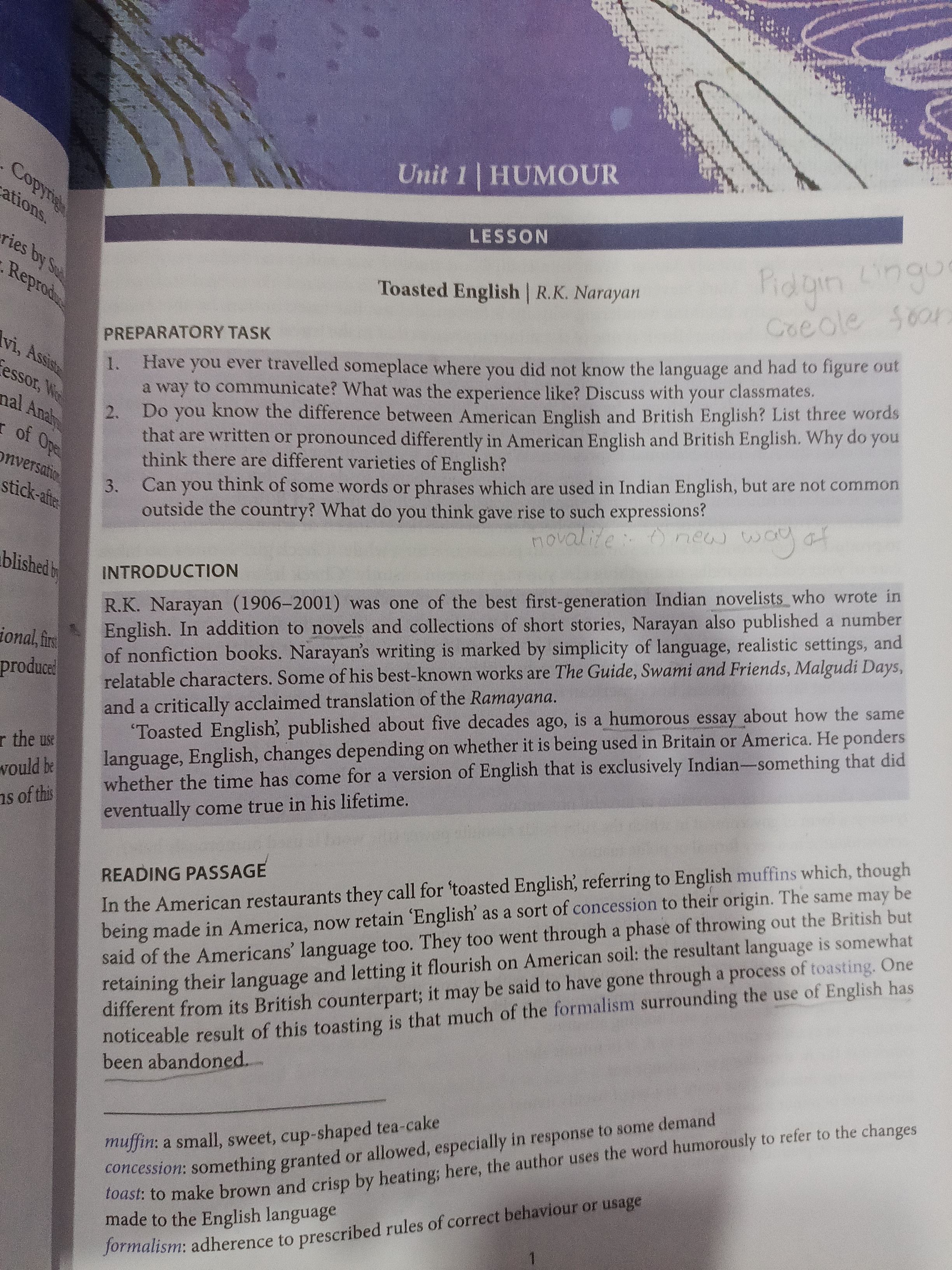1. Have you ever travelled someplace where you did not know the language and had to figure out a way to communicate? What was the experience like? Discuss with your classmates. 2.... 1. Have you ever travelled someplace where you did not know the language and had to figure out a way to communicate? What was the experience like? Discuss with your classmates. 2. Do you know the difference between American English and British English? List three words that are written or pronounced differently in American English and British English. Why do you think there are different varieties of English? 3. Can you think of some words or phrases which are used in Indian English, but are not common outside the country? What do you think gave rise to such expressions?

Understand the Problem
The question is asking readers to consider their experiences with language barriers, the differences between American and British English, and the unique expressions in Indian English. This involves reflecting on personal experiences and understanding linguistic variations.
Answer
Traveling without the language requires improvisation; American/British English differ due to history; Indian English includes unique terms like 'prepone'.
- Traveling where you don't know the language can be challenging but learning basic phrases, using gestures, and translation apps can help. 2. Differences in American and British English: 'color/colour', 'apartment/flat', 'trash/bin'. Varieties arise due to historical and cultural influences. 3. Indian English examples: 'prepone', 'timepass', 'cousin brother'. These expressions result from cultural contexts and language mixing.
Answer for screen readers
- Traveling where you don't know the language can be challenging but learning basic phrases, using gestures, and translation apps can help. 2. Differences in American and British English: 'color/colour', 'apartment/flat', 'trash/bin'. Varieties arise due to historical and cultural influences. 3. Indian English examples: 'prepone', 'timepass', 'cousin brother'. These expressions result from cultural contexts and language mixing.
More Information
English developed varieties due to colonization and interaction with different cultures. American English evolved distinctively from British English due to distance and independence.
Tips
A common mistake is assuming all English speakers use the same vocabulary; understanding cultural contexts can clarify misunderstandings.
Sources
AI-generated content may contain errors. Please verify critical information